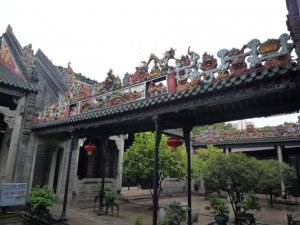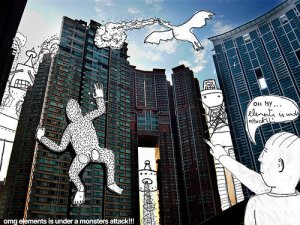With a SLR in hand, I feel an aura of invincibility brimming from within –
You see, for someone illiterate with a paint brush—or any drawing device for that matter—the camera is a saving grace fallen from the heaven of heavens. I do not consider myself a complete philistine, but I have, by cruel fate, been precluded from the artistic talents that propelled my mother and siblings to neat careers in arts in design; when my elementary school buddies drew vivid 3-dimensional portraits of the girls in their dreams, I gave life to hideously disproportional creatures that resembled crosses between Mr. Potato Head and Stick Man. Well, if they looked like creatures at all.
I was given my first camera at the age of twelve, prior to attending a summer camp in Pebble Beach, CA; it was a Yashica FX3 super, an economic manual SLR that came with a plastic 50mm lens. It was the most bare-bone model that one could find on the back shelves of stores; but for me, it was an instrument of pulchritude and the best thing that occurred to me outside of the girl who took my virginity. It became an extension of me in the twelve years that followed, channeling the wee bits of creativity that I never knew I had. It recorded my first dark-room photograph, and the best projects I have produced; it captured moments I still cherish and, well, moments I would not tell you about even if I had to wrestle a hippo.
The slew of things that a camera can be is more than awe-inspiring. Depending on the context, images it produces ranges from art, corroboratory evidence, documentaries, decoration, escape, fantasy, portraits, postcards, snapshots of life, tabloid, voyeurism, to visual information source, and proof to your anxious mother that your boy/girlfriend is not an ogre. It is the multi-purpose Swiss Army Knife of imagery, providing its operator countless means to indulge his/her senses and vices, while serving as a utilitarian tool for a variety of setups. Like other photo heads, the camera has become my long-time companion in both play and work. Through images of people and structures I find beauty, and through beauty I learn of urban forms and social dynamics that exist within them.
I write this as I give my Yashica a rebirth. For three years I have come to rely on digital cameras that, while error-proof, fun and versatile, do not possess the same lush, mechanic clicking sound when I press on the trigger. As great as digital images can be, they do not quite rival the occasionally grainy poetry yielded by a treasure-box armed with T-Max 100 film and a 50mm lens – Just ask Nickie.










